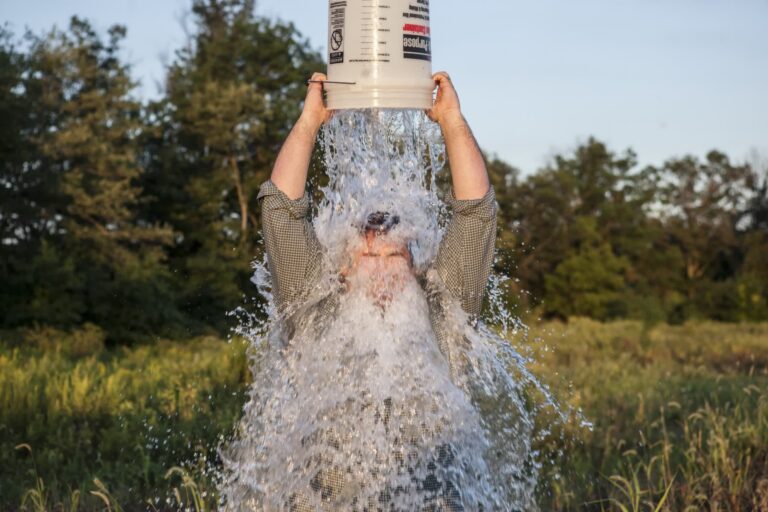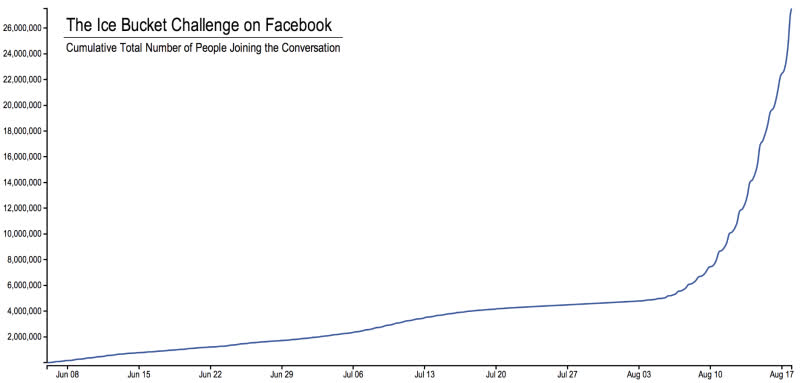
[ad_1]
Why it matters: Social media challenges are nothing new, but how often do you hear of one resulting in something truly positive? Since 2014, the Amyotrophic Lateral Sclerosis (ALS) ice bucket challenge has prompted thousands of social media users to douse themselves in ice-cold water and donate to the ALS Association. As a result, the challenge has raised more than $2 million, directly contributing to a newly approved ALS drug treatment.
Earlier this week, the ALS Association announced FDA approval of AMX0035, also known as Relyvrio. The new treatment’s funding included donations from 2014’s ALS ice bucket challenge, which spread like wildfire across social media platforms worldwide.
The ice bucket challenge gained traction following its popularization by Patrick Quinn and Pete Frates. As ALS patients themselves, they are responsible for considerable increases in awareness, engagement, and fundraising following the challenge’s 2014 rise. Former professional golfer Chris Kennedy also helped expose the movement to the mainstream. His video served as a springboard for the challenge to reach a larger, higher-profile audience.

Social media’s role in advancing the challenge and its cause was enormous. According to data provided by Facebook, the number of users engaging in conversations about the ALS ice bucket challenge rose from zero in early June 2014 to more than 6 million by August 10th, 2014. Following this climb, the number of conversations regarding the challenge suddenly quadrupled, engaging more than 24 million users as of August 17th, 2014. Talk about going viral.
This massive spike in engagement drew the likes of social media users from all walks of life, including Facebook’s own Mark Zuckerberg. This exposure led to challenges for other high-profile and deep-pocketed celebrities, including Bill Gates, Facebook’s Sheryl Sandberg, and Netflix CEO Reed Hastings.
Amyotrophic Lateral Sclerosis, also known as Lou Gehrig’s disease, is a progressive neurological disease that leads to a decline in motor neurons. While the condition does not affect a person’s mental ability, it leads to strength and muscle loss, resulting in the immobility of the limbs and body and, eventually, the inability to breathe.
The donations received from the challenge directly impacted the ALS Association’s ability to support the new drug’s development. In 2016, the association provided Amylyx Pharmaceuticals with a $750,000 grant to support the new drug’s clinical trial pilot program. A month later, it furnished another $1.46 million in donated funds to the Northeast ALS Consortium (NEALS) to support AMX0035’s phase 2 clinical trials.
[ad_2]